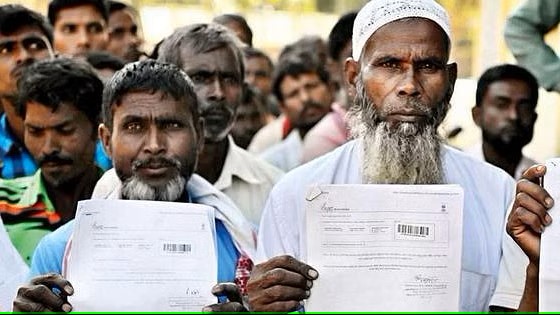In Assam, a northeastern state of India, the term ‘Miya’ Muslims has become emblematic of a contentious and painful chapter in the region’s sociopolitical landscape. This group, primarily comprising Bengali-speaking Muslims, has faced increasing scrutiny and persecution in recent years. Their struggles reflect a broader issue of identity, citizenship, and political marginalization that has intensified in the context of Assam’s fraught ethnic and communal tensions.
Historical Context and Identity
The ‘Miya’ Muslims are predominantly descendants of migrants who arrived in Assam during the British colonial period. They settled in various parts of the state, particularly in the Barak Valley and some areas of the Brahmaputra Valley. Historically, these communities have faced social and economic marginalization, but recent years have seen a significant escalation in their plight.
The term ‘Miya’ has evolved from being a simple identifier of the community’s linguistic and cultural background to a label that is often used pejoratively. This shift is deeply intertwined with the political and social climate in Assam, where issues of citizenship, identity, and illegal immigration have become highly charged.
The Citizenship Debate
One of the central issues impacting the ‘Miya’ Muslims is the debate over citizenship and illegal immigration. The implementation of the National Register of Citizens (NRC) in Assam has been a focal point of this discourse. The NRC aims to identify legal Indian citizens and exclude those deemed illegal immigrants, primarily targeting individuals who cannot prove their residency before a cut-off date.
For many ‘Miya’ Muslims, proving their citizenship has been particularly challenging. Many families have lived in Assam for generations, but due to bureaucratic hurdles, incomplete documentation, and administrative errors, a significant number have found themselves excluded from the NRC. This exclusion has led to a state of uncertainty and fear, with many facing the threat of detention and deportation.
Social and Economic Marginalization
Beyond the citizenship issue, ‘Miya’ Muslims experience pervasive social and economic marginalization. They often reside in economically disadvantaged regions, where access to quality education, healthcare, and employment opportunities is limited. This socioeconomic disparity exacerbates their vulnerability to discrimination and persecution.
The community’s economic hardships are compounded by the lack of political representation and advocacy. In a state where ethnic and cultural identities play a significant role in politics, ‘Miya’ Muslims often find themselves on the periphery, struggling to have their voices heard and their issues addressed.
Recent Persecution and Violence
In recent years, the situation for ‘Miya’ Muslims has deteriorated significantly. Reports of violence, eviction drives, and targeted harassment have become increasingly common. The state government’s policies, combined with rising communal tensions, have exacerbated the plight of this community.
One of the most alarming developments has been the increase in eviction drives in areas predominantly inhabited by ‘Miya’ Muslims. These drives, often conducted under the guise of anti-encroachment measures, have led to the demolition of homes and displacement of families. Such actions are frequently justified by authorities on the grounds of illegal settlement, but they disproportionately impact the ‘Miya’ Muslim community.
The Role of Media and Activism
The portrayal of ‘Miya’ Muslims in the media and public discourse has also played a role in their persecution. Often depicted in a negative light, the community faces widespread stigmatization, which reinforces prejudice and justifies discriminatory practices. The lack of nuanced reporting and the sensationalism of their issues further alienate them from broader societal support.
Despite these challenges, activism and advocacy have emerged as crucial responses to the persecution faced by ‘Miya’ Muslims. Various organizations and human rights groups have been working to document the abuses, provide legal aid, and mobilize public opinion. Efforts to address the community’s grievances and highlight their struggles are essential in countering the narrative of victimization and working towards justice.
Looking Ahead
The situation of ‘Miya’ Muslims in Assam underscores the complexities of identity, citizenship, and ethnicity in contemporary India. Their ongoing persecution reflects broader issues of discrimination and exclusion faced by marginalized communities. Addressing these issues requires a concerted effort from the government, civil society, and the media to ensure that the rights and dignity of all citizens are upheld.
As Assam continues to navigate its challenges, it is imperative to recognize and address the plight of the ‘Miya’ Muslims. Ensuring their inclusion and safeguarding their rights is crucial not only for justice but for fostering a more equitable and harmonious society. The path forward involves acknowledging historical injustices, confronting prejudices, and working towards a future where every individual’s rights are respected and protected.


